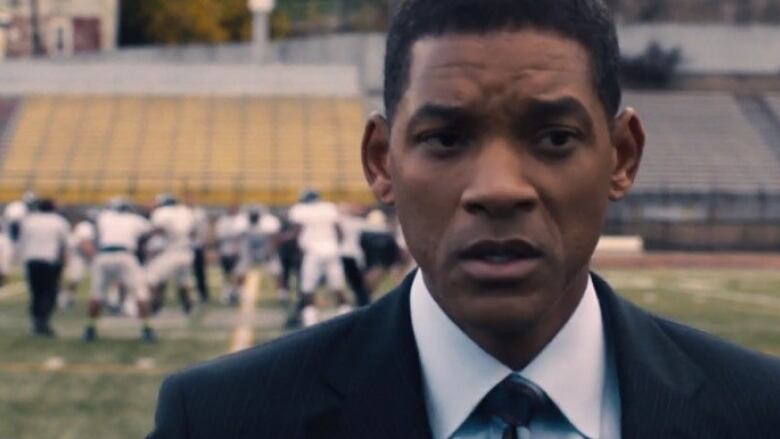Concussion app helps coaches check athletes after head-on collisions
App's UBC creators say it does a better job of assessing concussions right after they happen

UBC PhD students have created an app that helps coaches determine whether a player is okay to return to the game after a hit to the head.
Research in recent years has discovered brain damage, or CTE, in athletes who have suffered concussions. Coaches currently use a three-page concussion protocol to assess whether it is safe for an athlete to return to the ice or field after a collision. Each page represents a component of the protocol: symptom check, cognitive assessment, and a balance test.
- Brain of dead football player, 25, showed CTE damage after 10 concussions
- Ontario's proposed youth concussion law needed in B.C., says football association
Harrison Brown, a PhD candidate with the UBC School of Kinesiology, says his app, HeadCheck Health, does a better job at assessing concussions, especially with balance tests.
"That critical component of the balance test is currently scored using human judgment."
That means there is room for human error.
"What we've done with HeadCheck is essentially remove this area."
Objective assessment
Brown says the app comes with a wireless headband which can sense the athlete's movements during a balance test. The app calculates the movements and gives the user a balance test score.
"It gives you a completely objective view of balance. If I'm holding the app or my grandmother's holding the app, it doesn't matter," said Brown. "We're each going to arrive at the exact same score for your balance test."
An app for all athletes
Training equipment can cost sport teams thousands of dollars, but Brown wants HeadCheck to be accessible for young athletes or even recreational players.
"We don't want to create a tool that's $20,000 and only the Canucks can use," he said.
"[The app] is priced at $25 per athlete per year. So basically a team would buy a subscription for each athlete on their team. They can test an unlimited number of times."
Brown says 30 teams across Canada are currently testing the app. He aims to make the app available to the general public in February.
Brown is also conducting a study using sensors that collect data on the impact concussions have on the brain.
To listen to the full audio, click the link labelled:Concussion app by UBC PhD students to help coaches.












_(720p).jpg)


 OFFICIAL HD MUSIC VIDEO.jpg)
.jpg)



























































































